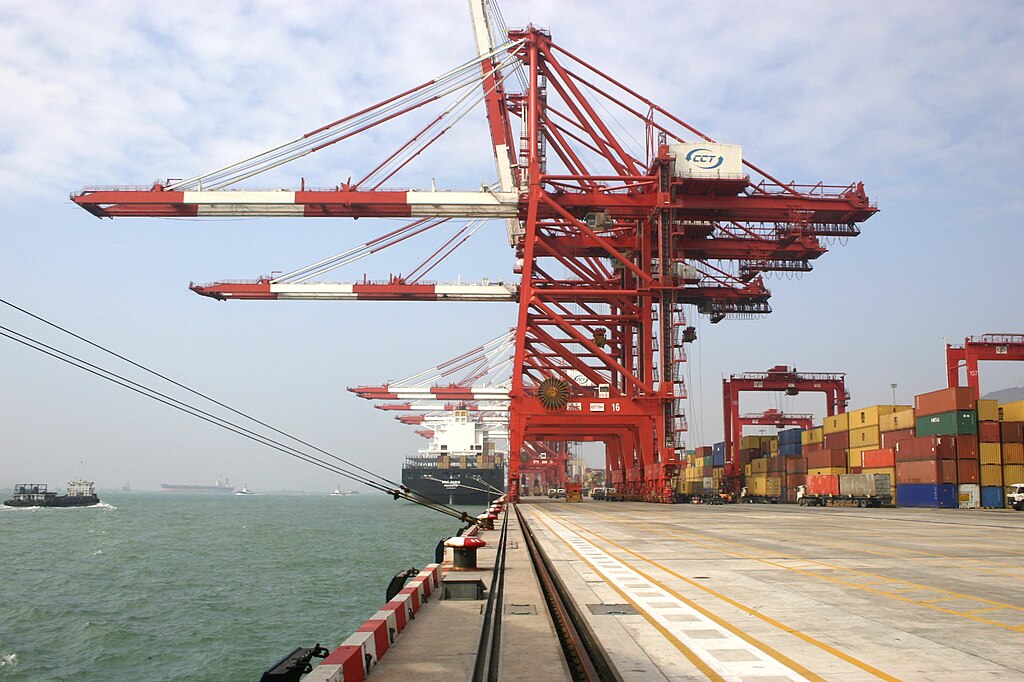China has filed a complaint with the World Trade Organization (WTO) against U.S. President Donald Trump’s new 10% tariffs on Chinese imports and the cancellation of a duty-free exemption for low-value packages. Beijing argues that these measures are protectionist and violate WTO rules.
The exemption, known as the "de minimis" rule, previously allowed imports under $800 to enter duty-free. Its removal has caused confusion among retailers and e-commerce firms like Shein, Temu, and Amazon. U.S. Customs and Border Protection now requires all small packages from China and Hong Kong to have customs entries filed before arrival, potentially leading to cargo being returned if paperwork is incomplete.
China contends that the tariffs, aimed at restricting fentanyl and its precursor chemicals, are discriminatory and inconsistent with WTO obligations. While a WTO ruling could favor China, the organization's Appellate Body remains stalled due to U.S. opposition, limiting enforcement of any decision.
Meanwhile, the U.S. Postal Service has resumed accepting parcels from China after a brief suspension. The abrupt policy shift has left businesses scrambling for clarity. Supply chain experts warn that requiring individual clearances for de minimis shipments could significantly burden postal services and customs agents, disrupting global trade.
Trump has shown no urgency to discuss the tariffs with Chinese President Xi Jinping, despite Beijing’s retaliatory measures, including tariffs on U.S. coal, LNG, crude oil, and farm equipment, as well as an anti-monopoly probe into Google.
U.S. Treasury Secretary Scott Bessent defended the tariffs as a strategy to bring manufacturing back to the U.S. However, Federal Reserve officials warn of potential inflationary effects, adding to economic uncertainty as businesses and policymakers navigate the evolving trade landscape.



 Asian Stocks Slip as Tech Rout Deepens, Japan Steadies Ahead of Election
Asian Stocks Slip as Tech Rout Deepens, Japan Steadies Ahead of Election  TrumpRx.gov Highlights GLP-1 Drug Discounts but Offers Limited Savings for Most Americans
TrumpRx.gov Highlights GLP-1 Drug Discounts but Offers Limited Savings for Most Americans  Dollar Steadies Ahead of ECB and BoE Decisions as Markets Turn Risk-Off
Dollar Steadies Ahead of ECB and BoE Decisions as Markets Turn Risk-Off  U.S.-India Trade Framework Signals Major Shift in Tariffs, Energy, and Supply Chains
U.S.-India Trade Framework Signals Major Shift in Tariffs, Energy, and Supply Chains  Newly Released DOJ Epstein Files Expose High-Profile Connections Across Politics and Business
Newly Released DOJ Epstein Files Expose High-Profile Connections Across Politics and Business  U.S. Sanctions on Russia Could Expand as Ukraine Peace Talks Continue, Says Treasury Secretary Bessent
U.S. Sanctions on Russia Could Expand as Ukraine Peace Talks Continue, Says Treasury Secretary Bessent  Iran–U.S. Nuclear Talks in Oman Face Major Hurdles Amid Rising Regional Tensions
Iran–U.S. Nuclear Talks in Oman Face Major Hurdles Amid Rising Regional Tensions  Trump Signs Executive Order Threatening 25% Tariffs on Countries Trading With Iran
Trump Signs Executive Order Threatening 25% Tariffs on Countries Trading With Iran  Nighttime Shelling Causes Serious Damage in Russia’s Belgorod Region Near Ukraine Border
Nighttime Shelling Causes Serious Damage in Russia’s Belgorod Region Near Ukraine Border  China Warns US Arms Sales to Taiwan Could Disrupt Trump’s Planned Visit
China Warns US Arms Sales to Taiwan Could Disrupt Trump’s Planned Visit  Oil Prices Slide on US-Iran Talks, Dollar Strength and Profit-Taking Pressure
Oil Prices Slide on US-Iran Talks, Dollar Strength and Profit-Taking Pressure  Trump Says “Very Good Talks” Underway on Russia-Ukraine War as Peace Efforts Continue
Trump Says “Very Good Talks” Underway on Russia-Ukraine War as Peace Efforts Continue  Trump Signs “America First Arms Transfer Strategy” to Prioritize U.S. Weapons Sales
Trump Signs “America First Arms Transfer Strategy” to Prioritize U.S. Weapons Sales  Federal Judge Restores Funding for Gateway Rail Tunnel Project
Federal Judge Restores Funding for Gateway Rail Tunnel Project  Japan Economy Poised for Q4 2025 Growth as Investment and Consumption Hold Firm
Japan Economy Poised for Q4 2025 Growth as Investment and Consumption Hold Firm  RBI Holds Repo Rate at 5.25% as India’s Growth Outlook Strengthens After U.S. Trade Deal
RBI Holds Repo Rate at 5.25% as India’s Growth Outlook Strengthens After U.S. Trade Deal  Trump Allows Commercial Fishing in Protected New England Waters
Trump Allows Commercial Fishing in Protected New England Waters 




























